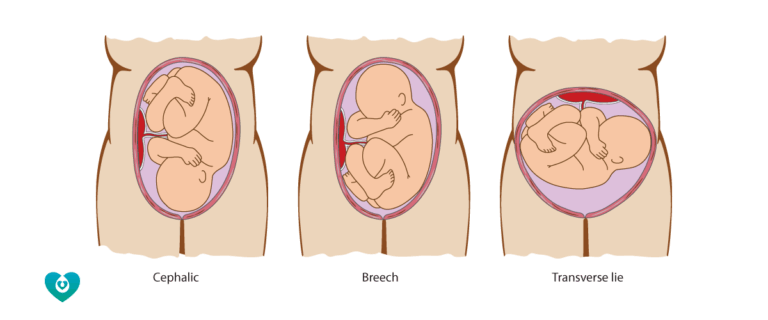Introduction
Embarking on the journey of fertility treatments is a significant life event, filled with both hope and uncertainty. For many, the dream of parenthood is closely tied to feelings of self-worth, identity, and future plans. Yet, as promising as modern fertility treatments are, they come with a host of emotional and psychological challenges that can be just as daunting as the physical procedures themselves.
The emotional impact of fertility treatments is multifaceted, affecting individuals and couples in profound ways. Stress, anxiety, mood swings, and self-doubt are common companions on this journey, and the strain can extend beyond the individual to their relationships and social circles. Understanding these emotional dynamics is crucial for anyone undergoing fertility treatments, as is recognizing the essential role of supportive fertility counselling in navigating this complex path. This article delves into the emotional impacts of fertility treatments, explores the challenges faced by both women and their partners, and underscores the importance of professional counselling to provide comprehensive care during this deeply personal journey.
The Emotional Rollercoaster
Dealing with Medical Procedures
Fertility treatments often involve a series of medical procedures that can be physically uncomfortable or even painful. These procedures, ranging from hormone injections to invasive surgeries, are not only challenging physically but also emotionally taxing. The anticipation of each procedure, coupled with the uncertainty of the outcome, can create a cycle of stress and anxiety that disrupts daily life.
Research has shown that higher levels of emotional distress are associated with lower pregnancy rates in women undergoing assisted reproductive technologies (ART) (Boivin, Griffiths, & Venetis, 2011). This connection between emotional well-being and treatment outcomes highlights the importance of addressing both the physical and psychological aspects of fertility care. The stress and anxiety surrounding these medical interventions can compound over time, making it essential to have robust emotional support systems in place.
Hormonal Treatments and Mood Swings
One of the most challenging aspects of fertility treatments is the hormonal therapy that often accompanies these procedures. Hormonal treatments are designed to optimize the chances of conception, but they come with significant side effects, particularly on emotional health. These treatments can lead to mood swings, increased irritability, and emotional instability, which can strain relationships with partners, family members, and colleagues.
Studies have consistently found that hormonal treatments can induce mood disturbances, making psychological support crucial for managing these side effects (Campagne, 2006; Eugster & Vingerhoets, 1999). The emotional volatility caused by these treatments can be overwhelming, leading to feelings of helplessness and frustration. This supports the need for a supportive environment where individuals can process these emotions and find ways to cope with the mood swings effectively.
Self-Image and Self-Worth
The struggle to conceive can take a heavy toll on an individual’s self-esteem and self-worth. Society often places a high value on parenthood, and the inability to conceive can lead to feelings of inadequacy and failure. For many, fertility issues strike at the core of their identity, challenging their perceptions of themselves and their roles in society.
Research has documented the deep psychological impact of infertility on self-esteem and identity, with many individuals reporting a significant decline in their self-worth during this time (Wischmann, 2013; Greil, Slauson-Blevins, & McQuillan, 2010). These feelings are often exacerbated by societal pressures and the internalized belief that parenthood is a fundamental aspect of adulthood. This emotional burden can be profound, leading to depression, anxiety, and social withdrawal.
Anxiety and Uncertainty
The journey through fertility treatments is fraught with uncertainty. Despite advances in medical technology, there is no guarantee of success, and this uncertainty can lead to chronic anxiety and stress. The emotional strain of not knowing whether the treatments will result in a successful pregnancy can be overwhelming, especially as time passes and the stakes feel increasingly high.
Anxiety and emotional fatigue are common reasons for discontinuation of fertility treatments, indicating the critical need for ongoing psychological support (Gameiro, Verhaak, Kremer, & Boivin, 2012; Hammarberg & Kirkman, 2013). The persistent uncertainty can lead to a cycle of hope and despair, which is emotionally exhausting. Continuous emotional support, including counselling, can help individuals manage this uncertainty and maintain their emotional well-being throughout the treatment process.
Navigating Negative Emotions
Understanding Negative Emotions
Fertility treatments often unearth a spectrum of negative emotions that can be difficult to manage. Feelings of jealousy, particularly towards those who conceive naturally, are common. There may also be feelings of guilt and self-blame, especially if the treatments are not successful. These emotions, if left unchecked, can lead to severe psychological distress and impact mental health.
Research highlights the importance of coping with such negative emotions to prevent severe psychological distress (Pasch & Sullivan, 2017; Newton, Sherrard, & Glavac, 1999). It’s essential to acknowledge these emotions as a natural response to the challenges of fertility treatments. Professional counselling can provide strategies to manage these feelings, helping individuals to navigate their emotional landscape more effectively.
The Challenges of Single Motherhood
For single women undergoing fertility treatments, the emotional journey can be even more complex. The absence of a partner to share the emotional burden often means that single women face high levels of stress and anxiety alone. The decision to pursue motherhood solo can also lead to feelings of isolation, as societal norms often emphasize the traditional family structure.
Studies on single mothers by choice show that while challenges exist, appropriate support can help manage these stresses effectively (Murray & Finn, 2012; Jadva, Badger, Morrissette, & Golombok, 2009). Counselling tailored to the unique needs of single women can be invaluable, providing them with the tools and support needed to navigate this journey with confidence and emotional resilience.
Challenges Faced by Male Partners
The emotional impact of fertility treatments on male partners is often less visible but equally significant. Men may struggle with feelings of inadequacy, particularly if infertility issues are related to sperm quality. Additionally, the pressure to support their partner emotionally while managing their own stress can be overwhelming.
The psychological challenges faced by male partners during infertility treatments have been documented, emphasizing the need for inclusive support services (Fisher & Hammarberg, 2012; Cousineau & Domar, 2007). These challenges can strain relationships, as men often feel compelled to suppress their emotions, leading to increased stress and anxiety. Providing male partners with access to counselling can help them navigate their emotional experiences and support their partners more effectively.
Supportive Fertility Counselling
What is Supportive Fertility Counselling?
Supportive fertility counselling refers to specialized psychological support designed to help individuals and couples manage the emotional and psychological challenges of fertility treatments. This type of counselling offers a safe space to express and process complex emotions, provides coping strategies, and helps individuals maintain their mental health throughout the fertility journey. It can include individual therapy, couples counselling, and group support, and is often tailored to the specific needs of those undergoing fertility treatments. Supportive fertility counselling is not just about addressing immediate emotional concerns; it also involves building long-term resilience and coping strategies. This approach helps individuals and couples navigate the ups and downs of fertility treatments, providing them with the emotional tools needed to handle the journey ahead.
Couples Counselling
Joint sessions can be particularly beneficial, helping partners understand and empathize with each other’s emotional experiences. These sessions focus on strengthening communication, maintaining intimacy, and strategizing on managing treatment pressures together. Couples counselling has been shown to enhance relationship satisfaction and improve coping mechanisms during fertility treatments (Peterson, Gold, & Feingold, 2007; Tamaki, 2010). By participating in couples counselling, partners can work together to address the emotional challenges of fertility treatments. This collaborative approach fosters a deeper understanding of each other’s experiences, leading to stronger emotional bonds and better overall outcomes in the fertility journey.
Continuous Support Beyond Pregnancy
It’s important to recognize that the need for emotional support doesn’t necessarily end with a successful pregnancy. Many couples find continued counselling helpful in managing the anxieties that come with pregnancy after fertility treatments, ensuring emotional stability and resilience. Continued psychological support has been found beneficial even years after fertility treatments, helping couples adjust emotionally regardless of treatment outcomes (Hynes, Callan, Terry, & Gallois, 1992; Gameiro, Moura-Ramos, & Canavarro, 2009).
Supportive fertility counselling provides a framework for ongoing emotional care, helping individuals and couples navigate the challenges of pregnancy and early parenthood. This continuity of care is crucial for maintaining mental health and emotional well-being as they transition from fertility treatments to parenthood.
Conclusion
Fertility treatments are not just a medical journey but an emotional voyage that requires psychological support and understanding. By integrating supportive fertility counselling into the fertility treatment process, individuals and couples can be better equipped to handle the emotional complexities of this life-changing path. For those undergoing or considering fertility treatments, remember that it’s not only normal but necessary to seek support. At Acumamas, we are committed to supporting you not just physically but emotionally, providing comprehensive care that addresses every aspect of your fertility journey. If you’re navigating the emotional challenges of fertility treatments, consider booking a consultation with one of our experienced fertility counsellors. Visit our Counselling Services page to learn more about how we can support your journey.
References
- Boivin, J., Griffiths, E., & Venetis, C. A. (2011). Emotional distress in infertile women and failure of assisted reproductive technologies: meta-analysis of prospective psychosocial studies. BMJ, 342, d223.
- Verhaak, C. M., Smeenk, J. M., Evers, A. W., Kremer, J. A., Kraaimaat, F. W., & Braat, D. D. (2007). Women’s emotional adjustment to IVF: a systematic review of 25 years of research. Human Reproduction Update, 13(1), 27-36.
- Campagne, D. M. (2006). Should fertilization treatment start with reducing stress? Human Reproduction, 21(7), 1651-1658.
- Eugster, A., & Vingerhoets, A. J. (1999). Psychological aspects of in vitro fertilization: a review. Social Science & Medicine, 48(5), 575-589.
- Wischmann, T. (2013). Psychological aspects of fertility disorders. Urologe A, 52(2), 169-175.
- Greil, A. L., Slauson-Blevins, K., & McQuillan, J. (2010). The experience of infertility: a review of recent literature. Sociology of Health & Illness, 32(1), 140-162.
- Gameiro, S., Verhaak, C. M., Kremer, J. A., & Boivin, J. (2012). Why do patients discontinue fertility treatment? A systematic review of reasons and predictors of discontinuation in fertility treatment. Human Reproduction Update, 18(6), 652-669.
- Hammarberg, K., & Kirkman, M. (2013). Infertility in resource-constrained settings: moving towards amelioration. Reproductive BioMedicine Online, 26(2), 189-195.
- Pasch, L. A., & Sullivan, K. T. (2017). Stress and coping in couples facing infertility. Current Opinion in Psychology, 13, 131-135.
- Newton, C. R., Sherrard, W., & Glavac, I. (1999). The Fertility Problem Inventory: measuring perceived infertility-related stress. Fertility and Sterility, 72(1), 54-62.
- Murray, C., & Finn, M. (2012). Good mothers, bad mothers: Exploring the maternal identities of women who undergo IVF in the pursuit of solo motherhood. Reproductive BioMedicine Online, 24(7), 715-723.
- Jadva, V., Badger, S., Morrissette, M., & Golombok, S. (2009). Experiences of single mothers by choice and their children. Human Fertility, 12(4), 185-194.
- Fisher, J. R., & Hammarberg, K. (2012). Psychological and social aspects of infertility in men: an overview of the evidence and implications for psychologically informed clinical care and future research. Asian Journal of Andrology, 14(1), 121-129.
- Cousineau, T. M., & Domar, A. D. (2007). Psychological impact of infertility. Best Practice & Research Clinical Obstetrics & Gynaecology, 21(2), 293-308.
- Hammerli, K., Znoj, H., & Barth, J. (2009). The efficacy of psychological interventions for infertile patients: a meta-analysis examining mental health and pregnancy rate. Human Reproduction Update, 15(3), 279-295.
- Frederiksen, Y., Farver-Vestergaard, I., Skovgård, N. G., Ingerslev, H. J., & Zachariae, R. (2015). Efficacy of psychosocial interventions for psychological and pregnancy outcomes in infertile women and men: a systematic review and meta-analysis. BMJ Open, 5(1), e006592.
- Peterson, B. D., Gold, L., & Feingold, T. (2007). The experience and influence of infertility: considerations for couple counsellors. The Family Journal, 15(3), 251-257.
- Tamaki, Y. (2010). The role of the marital relationship in stress and coping processes during infertility treatments. Journal of Reproductive and Infant Psychology, 28(4), 396-403.
- Hynes, G. J., Callan, V. J., Terry, D. J., & Gallois, C. (1992). The psychological well-being of infertile women after a failed IVF attempt: the effects of coping. British Journal of Medical Psychology, 65(3), 269-278.
- Gameiro, S., Moura-Ramos, M., & Canavarro, M. C. (2009). Psychological and relational adjustment in couples experiencing infertility: a 6-year prospective analysis of the effects of successful and unsuccessful ART treatments. Human Reproduction, 24(3), 877-886.






